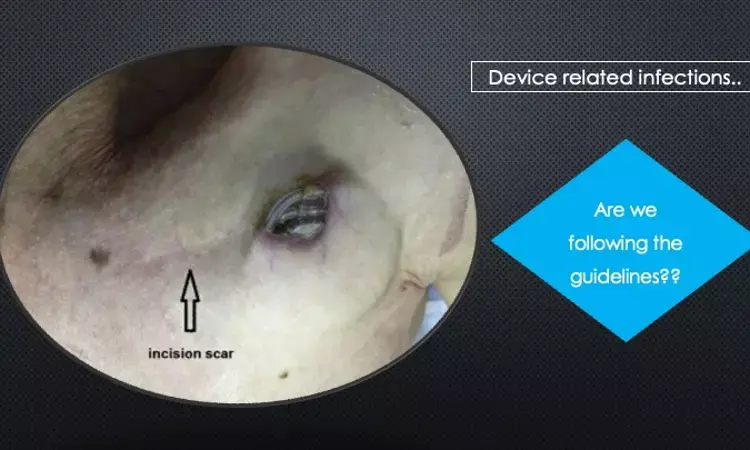- Home
- Medical news & Guidelines
- Anesthesiology
- Cardiology and CTVS
- Critical Care
- Dentistry
- Dermatology
- Diabetes and Endocrinology
- ENT
- Gastroenterology
- Medicine
- Nephrology
- Neurology
- Obstretics-Gynaecology
- Oncology
- Ophthalmology
- Orthopaedics
- Pediatrics-Neonatology
- Psychiatry
- Pulmonology
- Radiology
- Surgery
- Urology
- Laboratory Medicine
- Diet
- Nursing
- Paramedical
- Physiotherapy
- Health news
- Fact Check
- Bone Health Fact Check
- Brain Health Fact Check
- Cancer Related Fact Check
- Child Care Fact Check
- Dental and oral health fact check
- Diabetes and metabolic health fact check
- Diet and Nutrition Fact Check
- Eye and ENT Care Fact Check
- Fitness fact check
- Gut health fact check
- Heart health fact check
- Kidney health fact check
- Medical education fact check
- Men's health fact check
- Respiratory fact check
- Skin and hair care fact check
- Vaccine and Immunization fact check
- Women's health fact check
- AYUSH
- State News
- Andaman and Nicobar Islands
- Andhra Pradesh
- Arunachal Pradesh
- Assam
- Bihar
- Chandigarh
- Chattisgarh
- Dadra and Nagar Haveli
- Daman and Diu
- Delhi
- Goa
- Gujarat
- Haryana
- Himachal Pradesh
- Jammu & Kashmir
- Jharkhand
- Karnataka
- Kerala
- Ladakh
- Lakshadweep
- Madhya Pradesh
- Maharashtra
- Manipur
- Meghalaya
- Mizoram
- Nagaland
- Odisha
- Puducherry
- Punjab
- Rajasthan
- Sikkim
- Tamil Nadu
- Telangana
- Tripura
- Uttar Pradesh
- Uttrakhand
- West Bengal
- Medical Education
- Industry
Study shows poor adherence to guidelines for management of CIEDs infections: JAMA

Complete hardware removal is a class I recommendation for cardiovascular implantable electronic device (CIED) infection, but practice patterns and outcomes remain unknown. A recent study published in JAMA Cardiology suggests that only less than one-fifth of patients with CIED infection undergo this extraction and that there is a need to improve guideline-directed care of patients with CIED infections.
Infection remains a serious complication associated with CIEDs. Lead removal in cardiac implantable electronic device infections has been consistently reported with high success, low complication and very low mortality rates. Multiple guidelines have stated that complete and early extraction is associated with significantly better clinical outcomes compared with no extraction. Despite this rates of guideline- recommended lead extraction among CIED infection remains low/ poor recommendation compliance is seen.
To address this gap in literature a recent study was published in JAMA cardiology by Pokorney et al. They analysed data from a cohort of patients with de novo CIED implantation over a period of 14 years.
A CIED infection was defined as 1) endocarditis or infection of a device implant with 2) documented antibiotic therapy. The objective was to quantify the number of Medicare patients with CIED infections who underwent lead extraction to analyse the outcomes in these patients in a nationwide clinical practice cohort. The primary outcomes of interest were device infection, device extraction and all-cause mortality.
A total of 1065549 patients were followed. A total of 1.1% patients had device related infection. Infection occurred within a mean of 2.4 years after implantation and 1 year survival rate was 68.3%. A total of 18.6% with CIED infections underwent extraction within 30 days of diagnosis, while 13.4% had extraction within 6 days of diagnosis and 5.2% had extraction between days 7 and 30.
There was evidence of highly selective treatment as most patients did not have extraction within 30 days of diagnosis. Any extraction was associated with lower mortality rates compared with no extraction and further, extraction within 6 days was associated with even lower risk of mortality.
To conclude, infection is a life-threatening complication of implanted CIED’s. Although clinical evidence and guidelines support extraction of infected CIED, adherence remains limited. Findings suggest a need to improve compliance to guideline-directed care among patients with CIED infections.
Source: JAMA Cardiology: doi:10.1001/jamacardio.2023.3379
MBBS, MD , DM Cardiology
Dr Abhimanyu Uppal completed his M. B. B. S and M. D. in internal medicine from the SMS Medical College in Jaipur. He got selected for D. M. Cardiology course in the prestigious G. B. Pant Institute, New Delhi in 2017. After completing his D. M. Degree he continues to work as Post DM senior resident in G. B. pant hospital. He is actively involved in various research activities of the department and has assisted and performed a multitude of cardiac procedures under the guidance of esteemed faculty of this Institute. He can be contacted at editorial@medicaldialogues.in.
Dr Kamal Kant Kohli-MBBS, DTCD- a chest specialist with more than 30 years of practice and a flair for writing clinical articles, Dr Kamal Kant Kohli joined Medical Dialogues as a Chief Editor of Medical News. Besides writing articles, as an editor, he proofreads and verifies all the medical content published on Medical Dialogues including those coming from journals, studies,medical conferences,guidelines etc. Email: drkohli@medicaldialogues.in. Contact no. 011-43720751


